Saturday, 18 November 2023
09:00 - 17:00
The Hong Kong Jockey Club Hall, Asia Society Hong Kong Center
9 Justice Drive, Admiralty, Hong Kong
| Program | |
|---|---|
| 08:15 - 08:45 |
Registration |
| 09:00 - 09:05 |
Welcome Remarks |
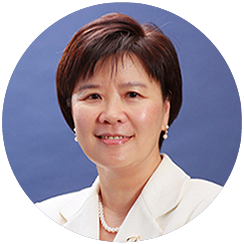 Nancy Ip
Member of the Chinese Academy of Sciences, the US National Academy of Sciences, the American Academy of Arts and Sciences, the World Academy of Sciences, and the Hong Kong Academy of Sciences Council Chair of the Greater Bay Area Association of Academicians President of the Hong Kong University of Science and Technology |
|
| 09:05 - 09:15 |
Opening Remarks |
 Sun Dong
Secretary for Innovation, Technology and Industry, The Government of the Hong Kong Special Administrative Region |
|
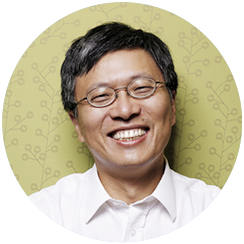 Harry Shum
Member of the US National Academy of Engineering Fellow of IEEE and ACM Council Chairman of the Hong Kong University of Science and Technology |
|
 Pascale Fung
AAAI, ACL and IEEE Fellow Chair Professor and Director of the Centre for AI Research (CAiRE) at Hong Kong University of Science and Technology |
|
| 09:15 - 10:00 |
Keynote Talk |
Objective-Driven AI: Towards Machines that can Learn, Reason, and PlanHow could machines learn as efficiently as humans and animals? How could machines learn how the world works and acquire common sense? How could machines learn to reason and plan? Current AI architectures, such as Auto-Regressive Large Language Models fall short. I will propose a modular cognitive architecture that may constitute a path towards answering these questions. The centerpiece of the architecture is a predictive world model that allows the system to predict the consequences of its actions and to plan a sequence of actions that optimize a set of objectives. The objectives include guardrails that guarantee the system's controllability and safety. The world model employs a Hierarchical Joint Embedding Predictive Architecture (H-JEPA) trained with self-supervised learning. The JEPA learns abstract representations of the percepts that are simultaneously maximally informative and maximally predictable. The corresponding working paper is available here. |
|
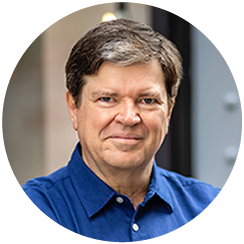 Yann LeCun
2018 ACM Turing Award Laureate Member of the US National Academy of Sciences, National Academy of Engineering, and the French Académie des Sciences Fellow of the AAAI, AAAS, ACM and IEEE VP and Chief AI Scientist at Meta Silver Professor at New York University |
|
| 10:00 - 10:30 |
Fireside Chat |
Frontier of AIThe research and development of AI have reached a watershed moment in the history of the technology. Traditionally, theoretical and leading research results came from university labs while the industry produced more applied research translating them into actual products. However, the new generation of frontier AI models are coming out of industry labs due to the requirement of huge amounts of training data and computing resources that are unavailable to most university research labs. In addition, many of the frontier models are not open to the public, and therefore not shareable with the academic community. In light of this, what is the future model of industry-academia collaboration? What should today’s AI PhD students work on in terms of their thesis topic when the SOTA seems to change every few months? What can we look forward to in the next 3 years in terms of AI research trends? What are the important AI problems to solve? We will discuss these and other topics in this fireside chat with Turing Award Laureate Professor Yann LeCun, Member of the US National Academy of Engineering Professor Harry Shum, moderated by Professor Pascale Fung, AAAI, ACL and IEEE Fellow, Director of the Centre for AI Research (CAiRE) at HKUST. |
|
 Yann LeCun
2018 ACM Turing Award Laureate Member of the US National Academy of Sciences, National Academy of Engineering, and the French Académie des Sciences Fellow of the AAAI, AAAS, ACM and IEEE VP and Chief AI Scientist at Meta Silver Professor at New York University |
|
 Harry Shum
Member of the US National Academy of Engineering Fellow of IEEE and ACM Council Chairman of the Hong Kong University of Science and Technology |
|
 Pascale Fung
Fellow of AAAI, ACL, IEEE and ISCA Chair Professor and Director of the Centre for AI Research (CAiRE) at Hong Kong University of Science and Technology |
|
| 10:30 - 10:45 | Tea Break |
| 10:45 - 11:15 |
Invited Talk |
Addressing Large Language Models that Lie: Case Studies in SummarizationThe advent of large language models promises a new level of performance in generation of text of all kinds, enabling generation of text that is far more fluent, coherent and relevant than was previously possible. However, they also introduce a major new problem: they wholly hallucinate facts out of thin air. When summarizing an input document, they may incorrectly intermingle facts from the input, they may introduce facts that were not mentioned at all, and worse yet, they may even make up things that are not true in the real world. In this talk, I will discuss our work in characterizing the kinds of errors that can occur and methods that we have developed to help mitigate hallucination in language modeling approaches to text summarization for a variety of genres. |
|
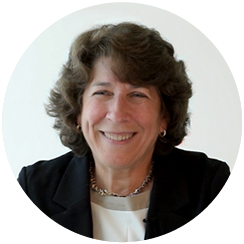 Kathleen McKeown
Member of the American Academy of Arts and Sciences and the American Philosophical Society Fellow of AAAI, ACL and ACM Henry and Gertrude Rothschild Professor of Computer Science at Columbia University |
|
| 11:15 - 11:45 |
Invited Talk |
Pengcheng Mind and AI Large Model CooperationAs a revolutionary chat pre-training model, ChatGPT has already placed a huge impact on global economic. It is the strong foundation of computing power that enables large models to continuously improve in the process of understanding massive data, resulting in breakthrough innovations. Based on the Pengcheng Cloud Brain E-level intelligent computing platform, Pengcheng Laboratory is training Pengcheng Mind foundation model, which is the first fully controllable, safe, open-source pre-training foundation model in China, with a parameter level of 200 billion, performance benchmarking with ChatGPT, and output in line with Chinese core values. In the future, Pengcheng Laboratory will open up Pengcheng Mind cooperation and work with external partners to continuously build a large model open-source consortium for domestic large model ecosystem. |
|
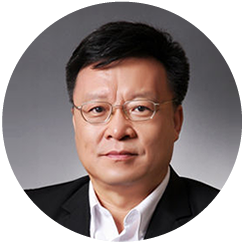 Gao Wen
Member of the Chinese Academy of Engineering Fellow of IEEE and ACM Director of Pengcheng Laboratory Boya Chair Professor at Peking University |
|
| 11:45 - 13:30 | Lunch Break |
| 13:30 - 14:00 |
Invited Talk |
Holistic Artificial Intelligence (HAI)Today, we have access to hundreds of large generative models and millions of smaller, task-specific models. Despite this, we currently lack a mechanism that allows for flexible dispatching and composition of multiple models to tackle the myriad of intelligent tasks we encounter in real-world scenarios. In this talk, Dr. Feng will unveil a novel framework, namely “Holistic Artificial Intelligence” (HAI), designed to alleviate the difficulty of AI service development by orchestrating available AI models. With HAI, a user or client can articulate his/her intelligent service requirement in a multitude of natural ways, such as through natural language, speech, illustrative images, action sequences, or a combination of these methods. The central control unit of HAI powered by foundation models maps this requirement to an execution plan consisting of a specific model or a cascaded process of multiple models. Additionally, it aligns these models with the most suitable computing and network facilities for efficient deployment. This talk will discuss the four major technical challenges that underpin the HAI framework, related work in the community, and her team’s explorations into this exciting field. |
|
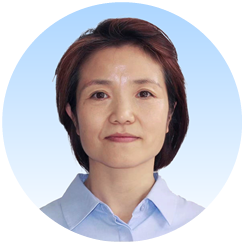 Feng Junlan
IEEE Fellow Chief Scientist, China Mobile and General Manager, AI and Smart Operation Center, China Mobile Institute |
|
| 14:00 - 14:30 |
Invited Talk |
Exploring the New Frontiers of AI – ByteDance's PursuitsThe emergence of ChatGPT has ushered in a new era of artificial intelligence (AI), offering unprecedented possibilities. The immense potential of the large AI models, especially those developed recently, is poised to revolutionize both our personal lives and professional activities. Along with these advancements also come novel challenges, issues, and opportunities. In this talk, Li will shed light on the ongoing research initiatives at ByteDance Research. Their mission is to spearhead the development of cutting-edge technologies in this new AI era. Currently, ByteDance Research is dedicating its efforts to several areas, including robotics, AI for science, responsible AI, and autonomous agents. During the talk, he will introduce the ultimate objectives, key technologies, and noteworthy outcomes of these research endeavors. |
|
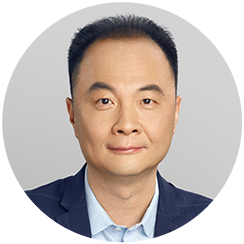 |
|
| 14:30 - 15:00 |
Invited Talk |
Experience and Challenges in Building Large Language Models at AlibabaIn this talk, the speaker will share his experience and lessons learned during the development of Tongyi Qianwen, also known as Qwen, a state-of-the-art large language model at Alibaba Cloud. He will first outline the key steps taken to construct a high-performing model with the ability to generate creative text, comprehend intricate instructions, tackle mathematical problems, and more. Subsequently, he will describe a variety of systems challenges in building large language models and present their innovative design in the areas of distributed storage, high performance networking, resource scheduling, and execution frameworks. Such techniques significantly enhance the efficiency of handling complex AI workloads in a distributed environment. |
|
 |
|
| 15:00 - 15:15 | Tea Break |
| 15:15 - 17:00 |
Contributed Session: AI Research in Hong Kong |
AI Research at PolyU: A Bird’s Eye View |
|
 Cao Jiannong
Member of Academia Europaea Fellow of IEEE, ACM, CCF and HKAES Dean of Graduate School and Otto Poon Charitable Foundation Professor in Data Science, The Hong Kong Polytechnic University |
|
Embodied AI System for Minimally Invasive Neurosurgery: from the Present to the Future |
|
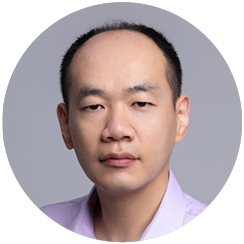 Liu Hongbin
Executive Director, Center for AI and Robotics in Hong Kong Institute of Science & Innovation under the Chinese Academy of Sciences |
|
Empowering Educators for Tomorrow: AI Literacy for Teachers |
|
 Looi Chee Kit
Fellow of the International Society of Learning Sciences and Asia-Pacific Society for Computers in Education Research Chair Professor of the Department of Curriculum and Instruction, The Education University of Hong Kong |
|
Social Context Assisted Fact-checking via Weakly Supervised Learning |
|
 Ma Jing
Assistant Professor of Computer Science, Hong Kong Baptist University |
|
Research, Development and Education of AI in the Hong Kong Context |
|
 Helen Meng
Fellow of IEEE and ISCA Patrick Huen Wing Ming Chair Professor of Systems Engineering and Engineering Management, The Chinese University of Hong Kong |
|
AI and Data Science @ Lingnan University |
|
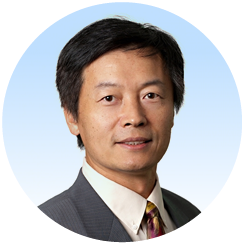 Joe Qin
Fellow of the US National Academy of Inventors Fellow of IFAC, AIChE and IEEE Wai Kee Kau Chair Professor of Data Science and President, Lingnan University |
|
Generative Image Modeling from the Perspective of Large Visual-Language Models |
|
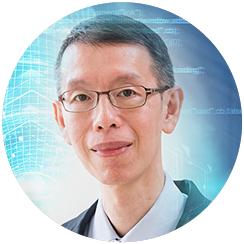 Wong Hau San
Professor of Computer Science, City University of Hong Kong |
|
Advancing Natural Language Interfaces with Language Models as Agents |
|
 Yu Tao
Assistant Professor of Computer Science, The University of Hong Kong |
|
Generative AI Makes Everyone an Artist |
|
 Guo Yike
Fellow of the Royal Academy of Engineering and European Academy of Sciences Fellow of IEEE, BCS, CAAI and HKAES Chair Professor of Computer Science and Engineering and Provost, The Hong Kong University of Science and Technology |
|
| 17:00 | End of the Event |